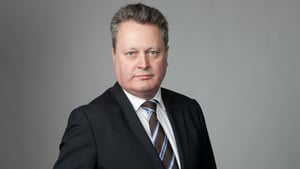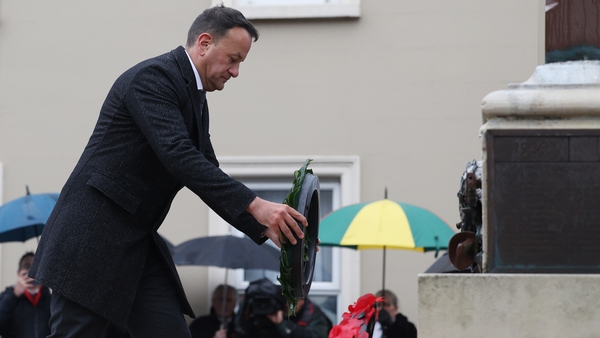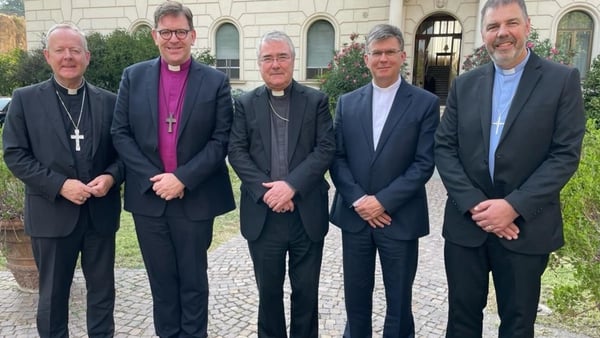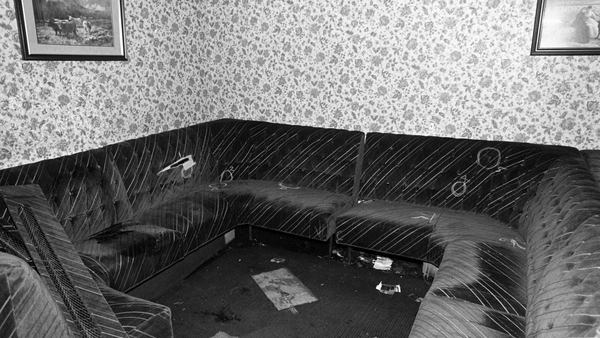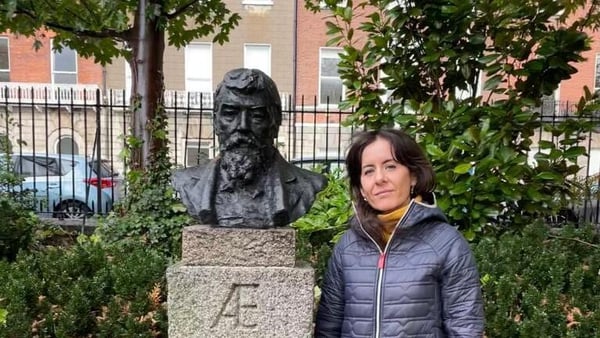Britain's King Charles spoke for 11 minutes this morning as he set out the British government's priorities for the year ahead, but there was no mention of restoring power-sharing in Northern Ireland being one of them.
The DUP has been engaged in what it has described as intensive negotiations with senior British government officials since June about the party's concerns over the Windsor Framework post-Brexit trade deal.
Party leader Jeffrey Donaldson has stated repeatedly that those concerns must be addressed if it's to end its boycott of power-sharing at Stormont.
Senior DUP members and the other main parties at Stormont had said in recent weeks there was an expectation that the British government would use the King's Speech to address some of the concerns by setting out plans to reinforce Northern Ireland's position within the UK's internal market.
In his first speech as Monarch at the State Opening of Parliament, King Charles said his government would "promote the integrity of the Union and strengthen the social fabric of the United Kingdom."
Priorities he outlined included legislation to safeguard the future of football clubs, legislation to strengthen the UK's energy security and to boost trade agreements.
But there was no mention of any intended legislation to strengthen Northern Ireland's position within the UK internal market.
That does not mean it can't happen, but there had been an expectation of a strong signal of the British government's willingness to address the DUP's concerns.
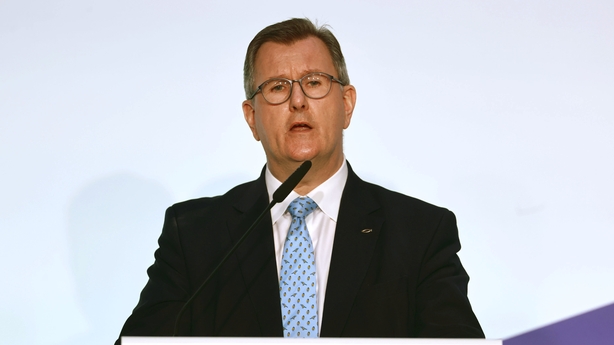
Mr Donaldson has said in recent weeks that the government was "moving closer" to addressing his party's concerns, while acknowledging that "significant gaps" remain.
Negotiations between the party and British officials will continue but the absence of a specific mention of planned legislation to safeguard Northern Ireland's position within the internal market could suggest that the gaps are very significant, or be part of a strategy to heap as much pressure as possible on the DUP to compromise.
The problem for the British government and those within the DUP who believe restoring power-sharing is the best strategic option is that a succession of opinion polls have shown that a majority of unionists back its ongoing boycott of Stormont.
Some within the party believe its best option now is to hold out until after the next British General and Stormont Assembly elections.
"To end that boycott now would be electoral madness," said one senior DUP member this morning.
"It is becoming increasingly clear that the unionist electorate endorses our position and the tough line we have taken.
"There is no reason for us to go back into power sharing at this stage because unionist voters have made it clear they don't want us to in the current circumstances.
"I don't think Jeffrey has been given enough by the government to persuade him to ask the party to go back in."
That assessment of the prospects for a return to devolution chimes with recent comments by the Taoiseach and Tánaiste.
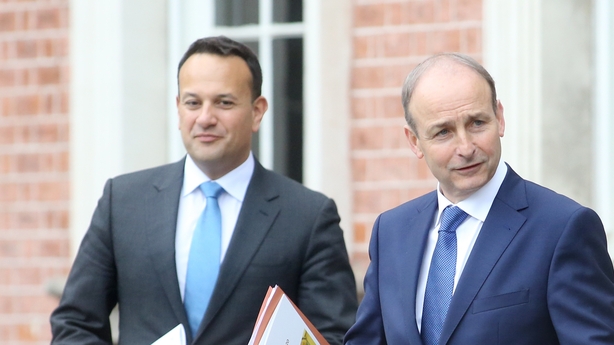
Tánaiste Micheál Martin said at the weekend that the progress of talks to restore devolution in Northern Ireland "seems to have ebbed."
Last month, Taoiseach Leo Varadkar warned that progress was at "a snail's pace" and he has spoken repeatedly of need for an alternative, a Plan B, if devolution is not restored in the near future.
In his speech at his party's conference two weeks ago Mr Donaldson said devolved government at Stormont is essential to help secure Northern Ireland's future within UK.
Warning that direct rule from Westminster would not be a recipe for success, he strongly signalled that his party could be preparing to end its boycott of power sharing.
"Having no say in our future will not be a recipe for success," he said.
Northern Secretary Chris Heaton-Harris has said several times in recent weeks that progress was being made and that he was confident of a breakthrough.
The King's Speech gave no hint that it's close.

